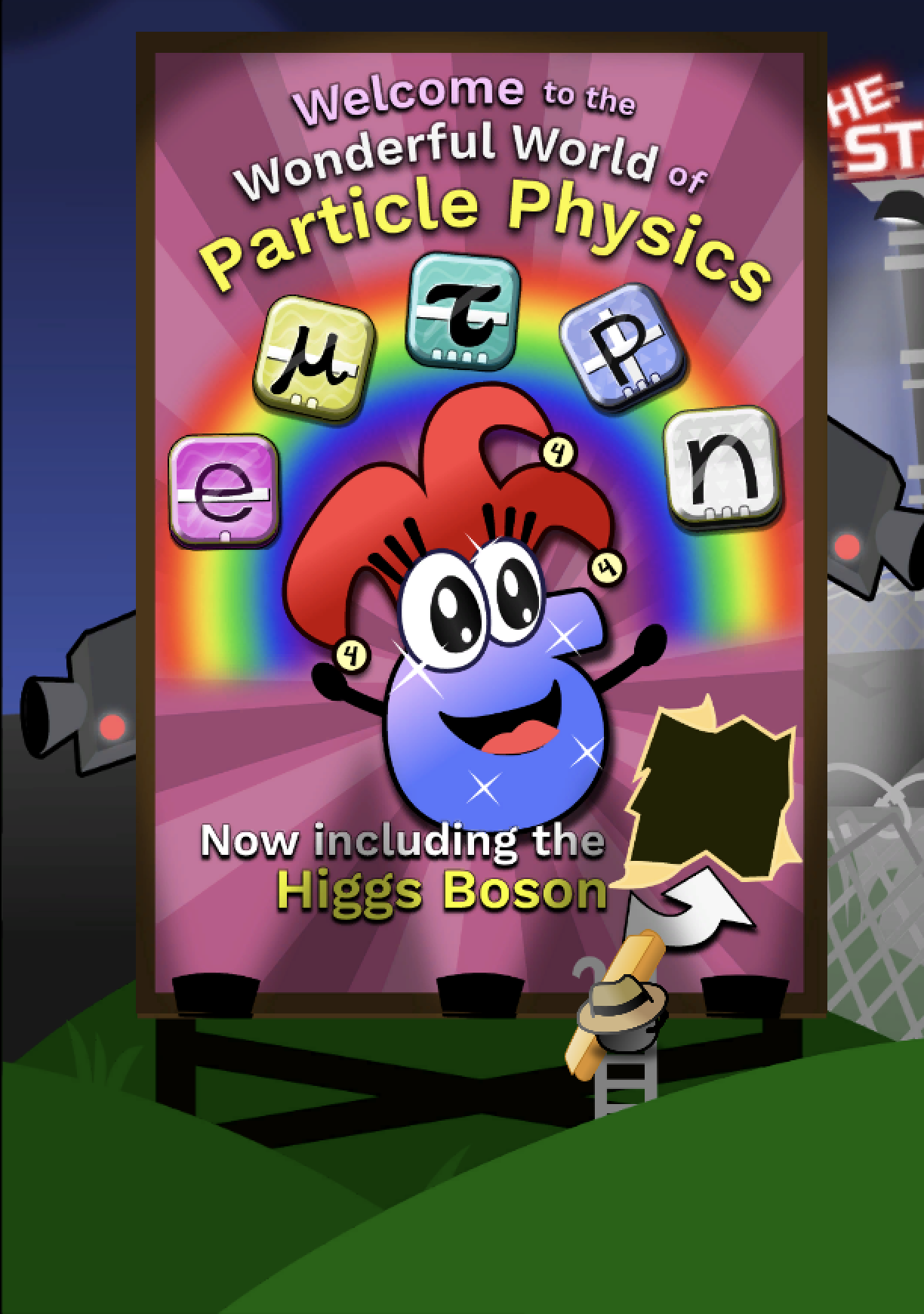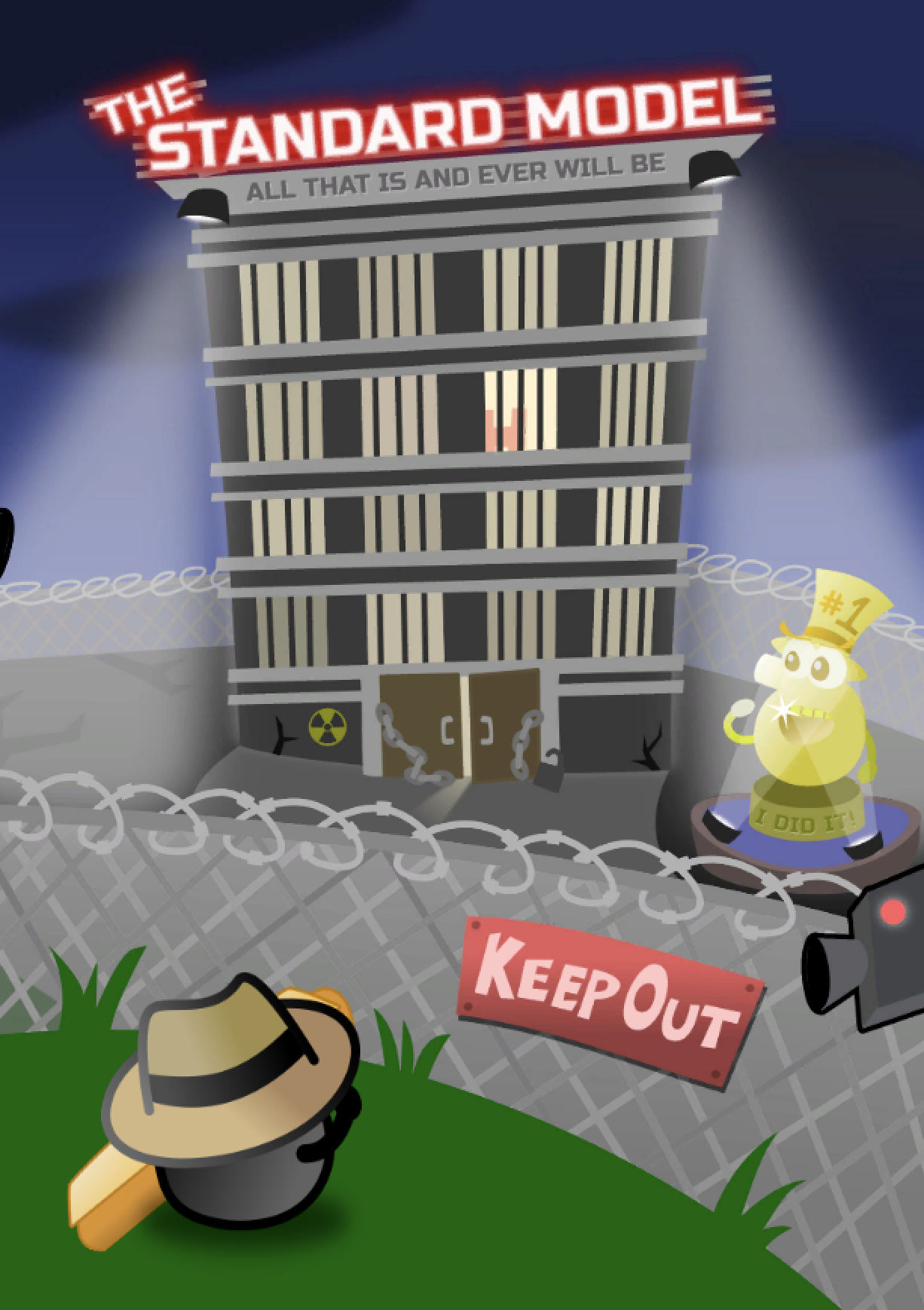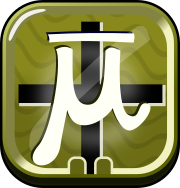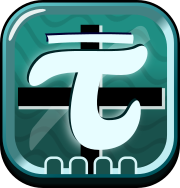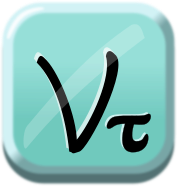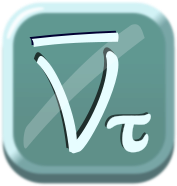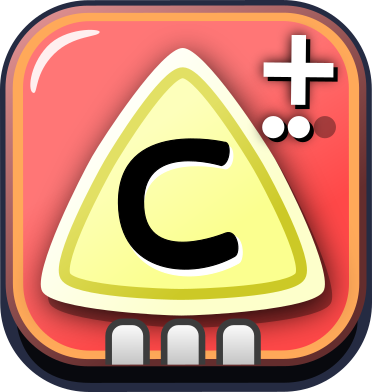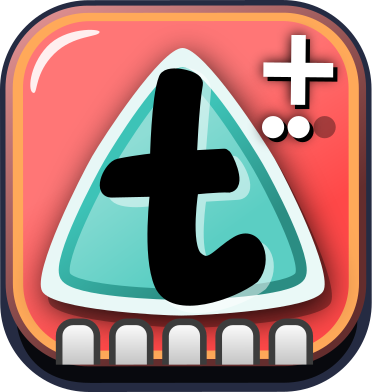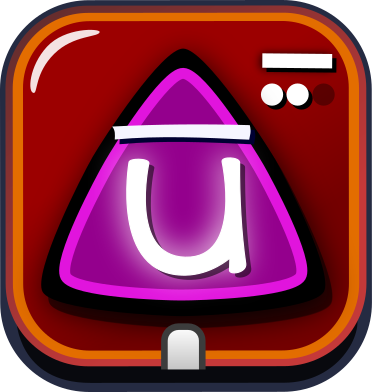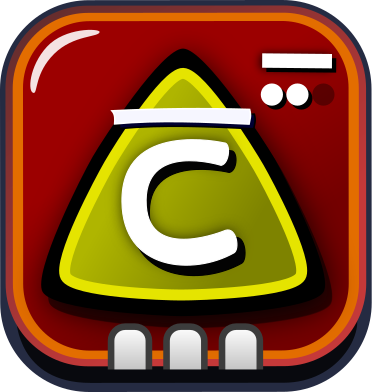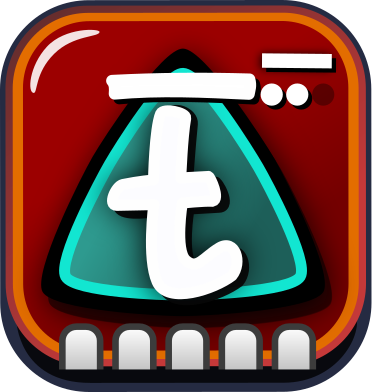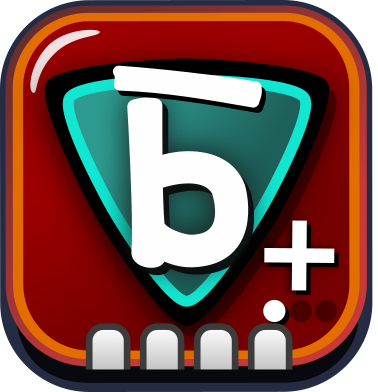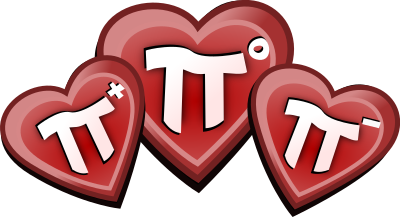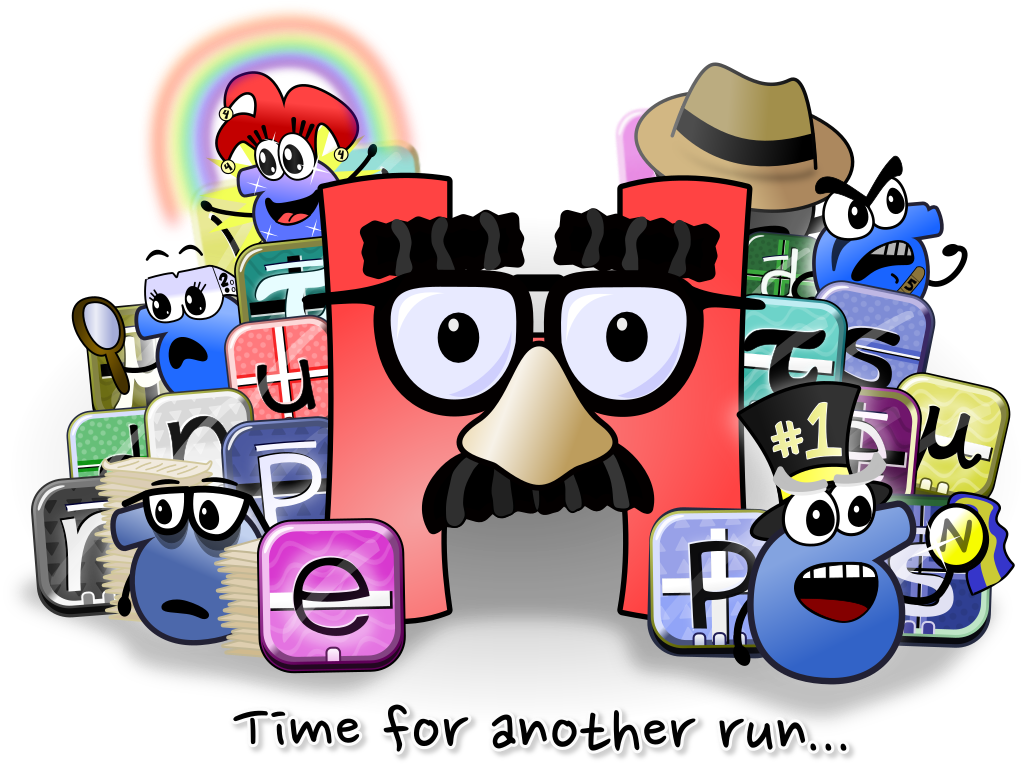
This Time it's Particle!
The Standard Model is finally complete
and fully operational.
Scientists found all the fundamental particles. Caught them. Measured them. And, yes, destroyed them. Electrons, quarks, neutrinos, and even the once-elusive Higgs.
Once you're trapped inside the Standard Model, there's no way out.
...until now.
The Game
Agent Higgs is back on the loose, and he needs your help. It's the world's smallest game of hide-and-seek, with the highest stakes possible. Succeed and you free every single particle from the clutches of the scientists. Fail, and the scientists may be unleashed onto the world Beyond the Standard Model.
Think your way through a puzzle game of sliding particles, where the rules are written by the universe itself. Hide behind muons. Smash through crates with the electric force. Build up ever-larger nuclei. Break walls with antimatter annihilation. Finally figure out what the Weak Force is all about. And see how strong color confinement really is.
Is Higgs breaking the law? Yes. But can he break the laws of physics? That's left as an exercise for the reader.
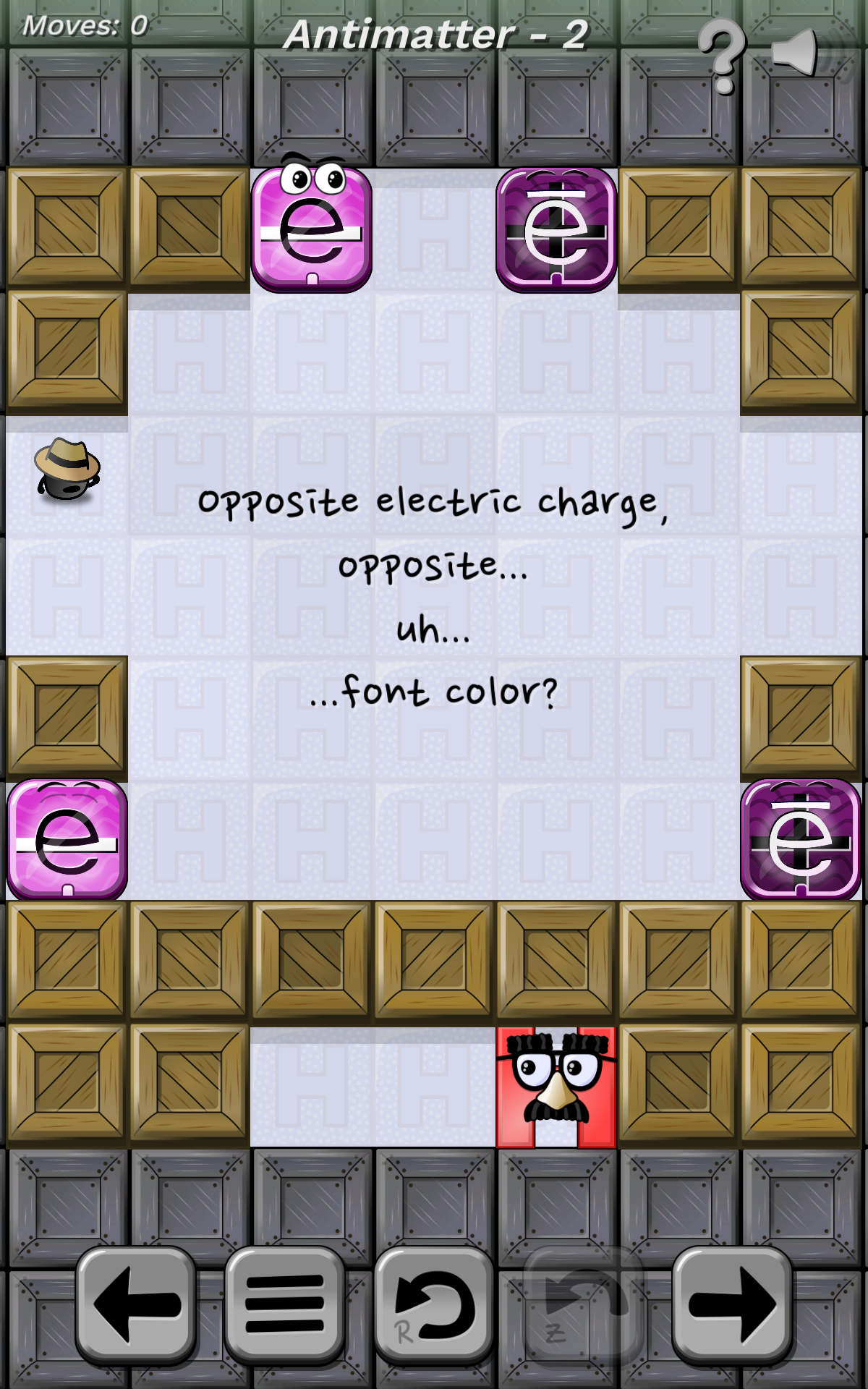
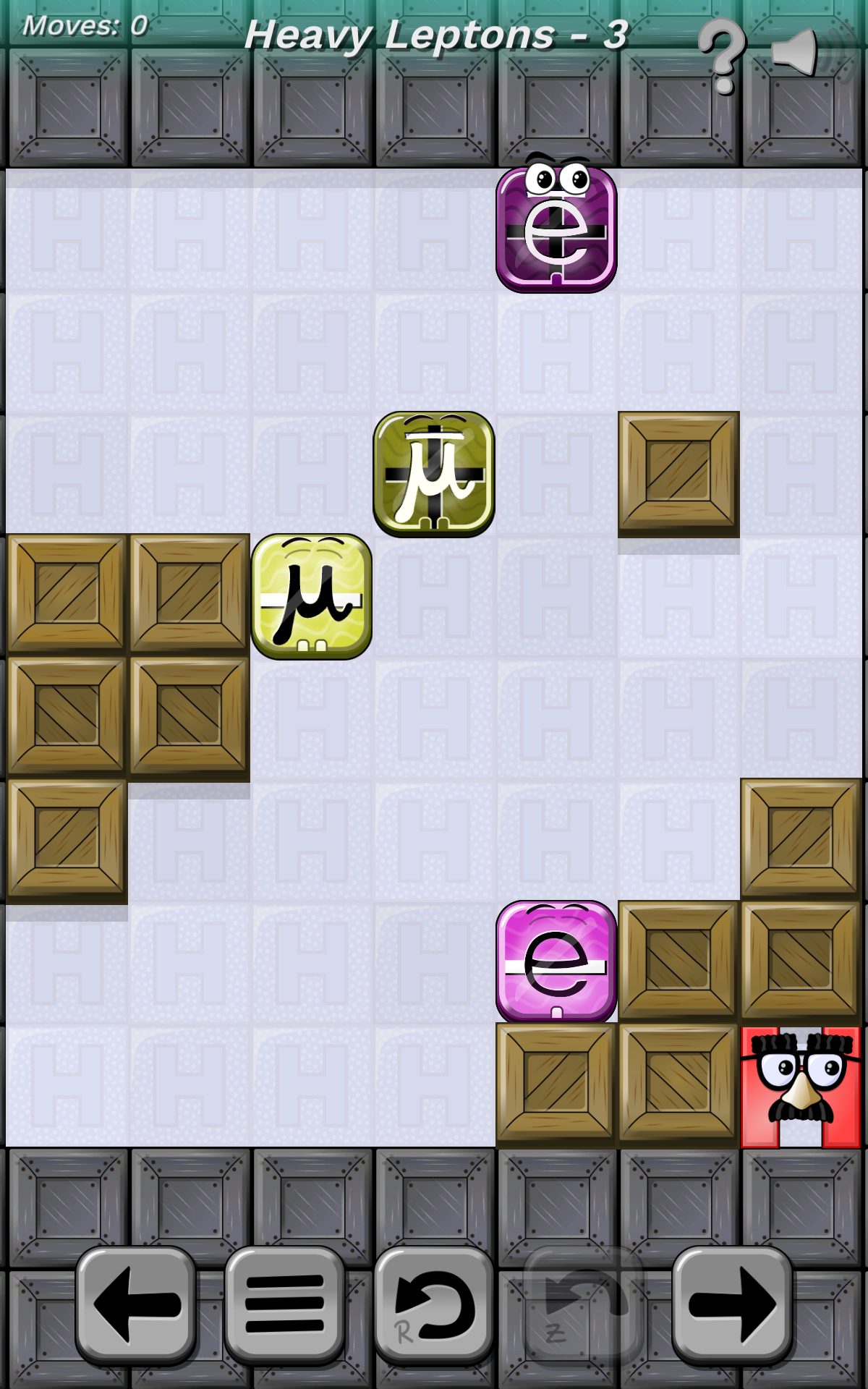
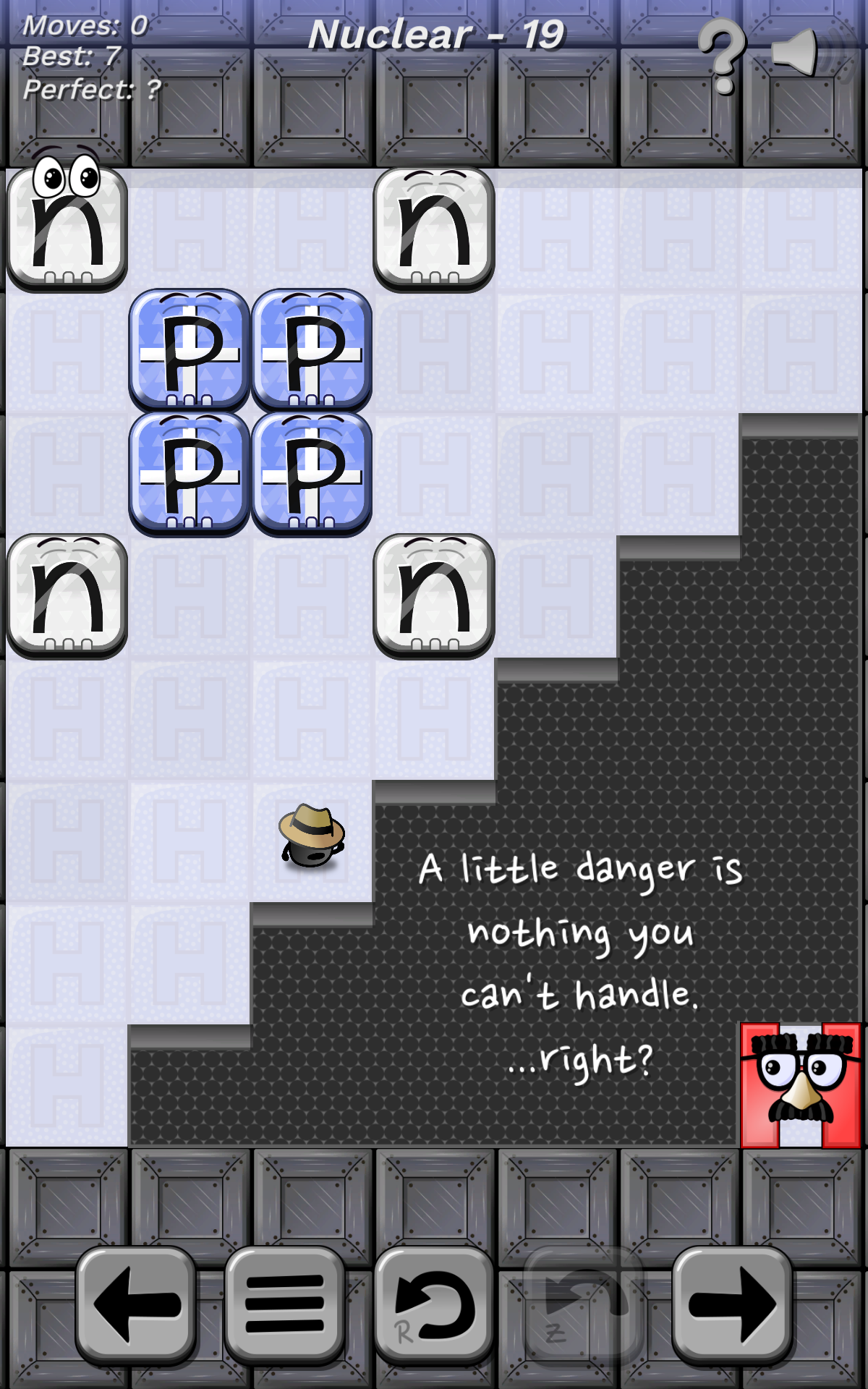
Let me Play!
The full game is coming (soon?) to a device near you.
In the meantime, try out the Daily Levels.
The Particles
The Science
This game is based on the physics of the Standard Model. The forces, particles, and quantum interactions you see in the game are ones you're really find in the real world. Within reason. (Can you really prove that the Higgs boson does *not* wear little glasses?)
- Electromagnetism (the Photon) - particles will attract or repel based on their electric charge.
- Weak Force (the Z boson) - particles can be pushed around the levels.
- Weak Force (the W bosons) - some particles can decay or combine into others.
- Strong Force (the gluons) - different color quarks attract together *strongly*.
- Nuclear Forces (the Pions) - stick nuclei together.
- Higgs Field (the Higgs) - gives rise to the masses of many particles, and is everywhere and totally fine, nothing to worry about there.
- Antimatter - there will be explosions, and they will depend on the mass of particles.
It's as much particle physics as I could legally fit inside a game.
Are there bits that *don't* match physics? Ab-so-lutely! Check out a list of some of the inaccuracies here. This is a game, after all, and sometimes fun and puzzle-logic need to win out over physics.
Wait, I remember this game...
You and 50 other people. I kid, I kid. But, wow, welcome back, it's been a while! The original Agent Higgs came out in 2012 -- and has since disappeared from the world (Higgs was *delighted* when that happened). This game is a direct sequel to the no-longer existent game. Because that's a good way for sequels to work.
Who am I?
This game was created by me, Andy Hall, the developer behind TestTubeGames. I was a momentary grad student in physics before leaving and getting into the world of science education. I worked for a handful of years at a science museum before starting to build science games and simulations. I can't guarantee everything in this game or these resources is accurate, but I can guarantee it is not all accurate. So that's something, right?
